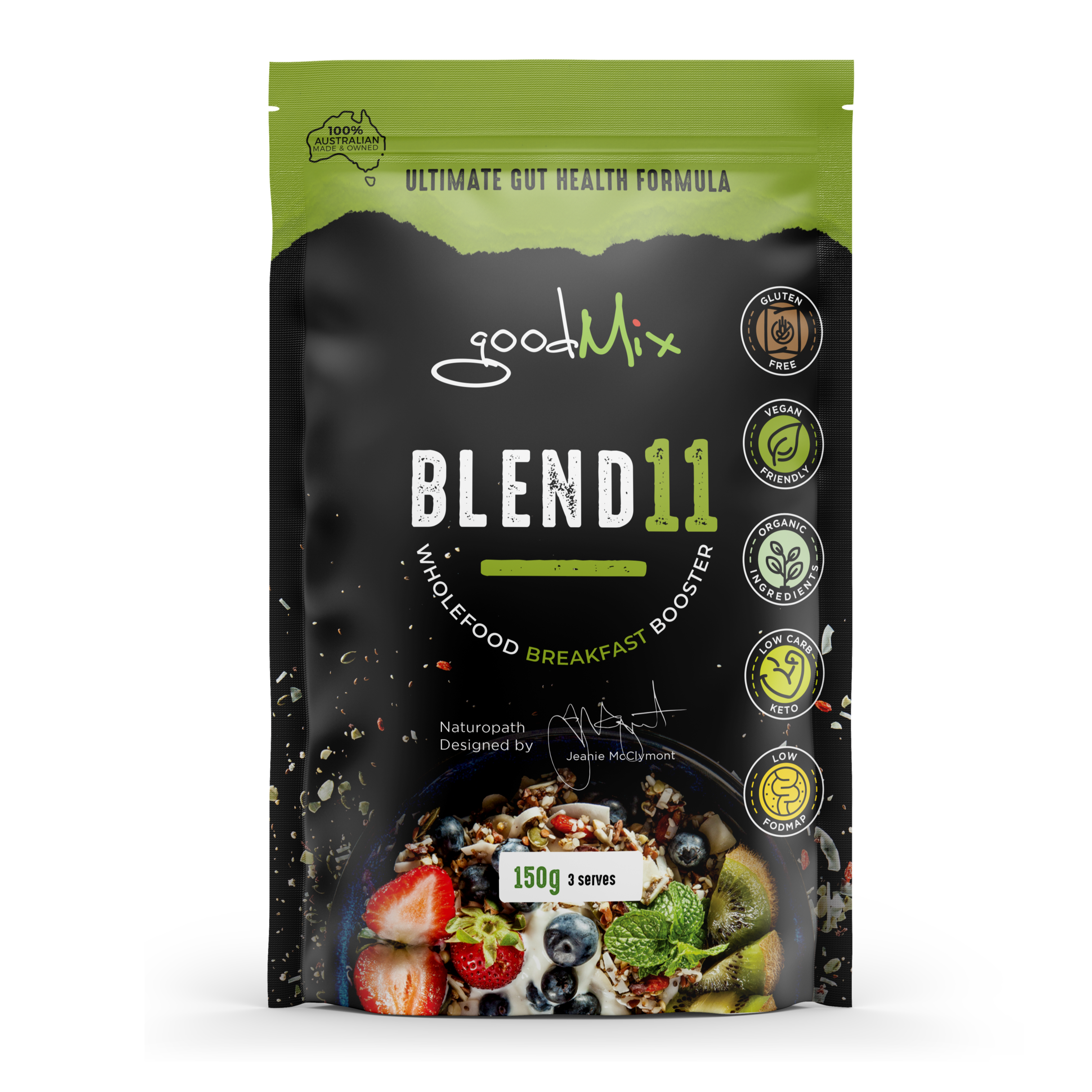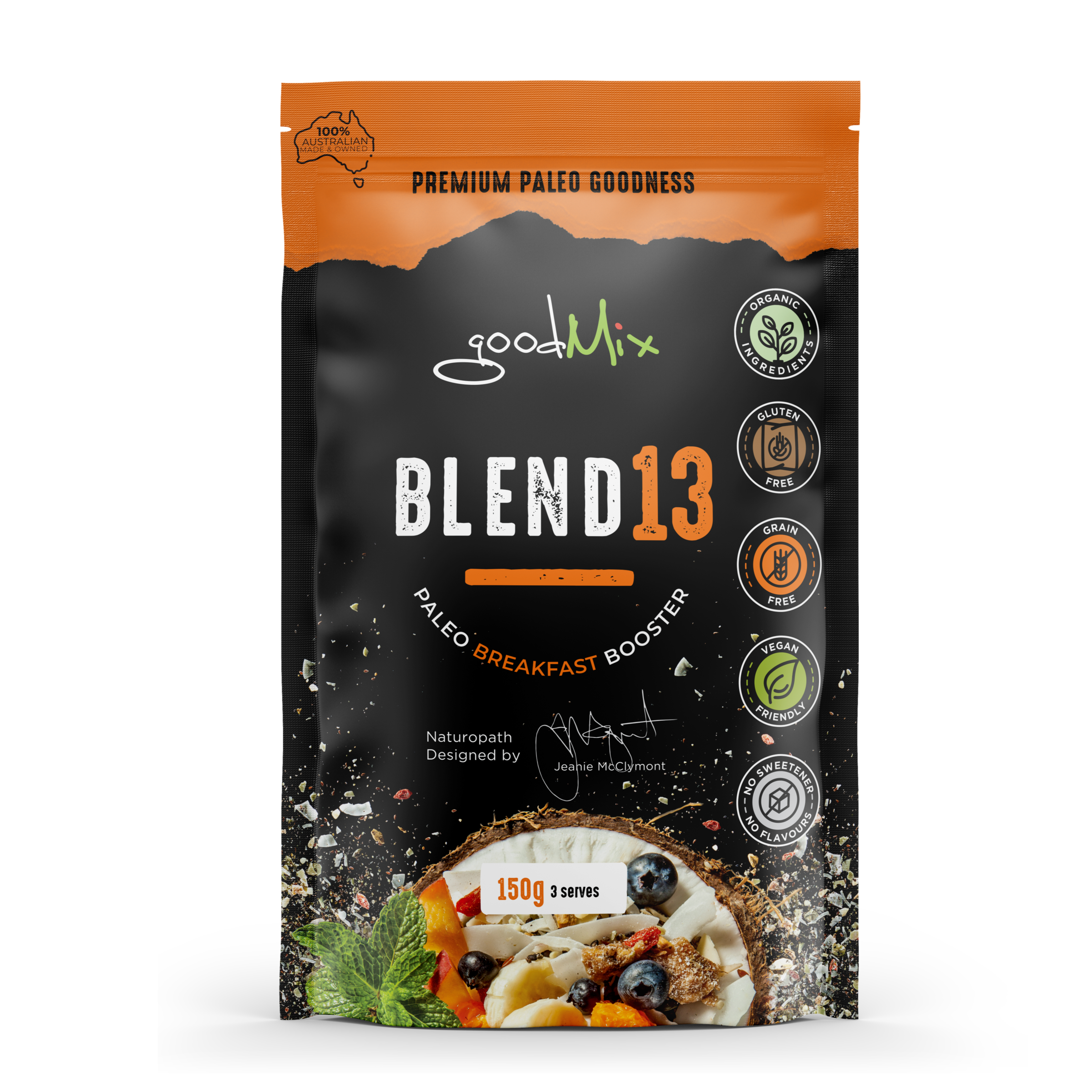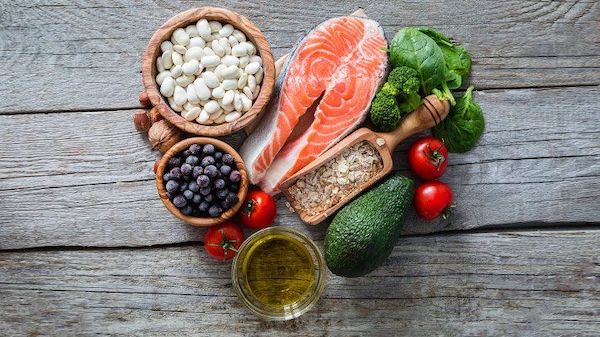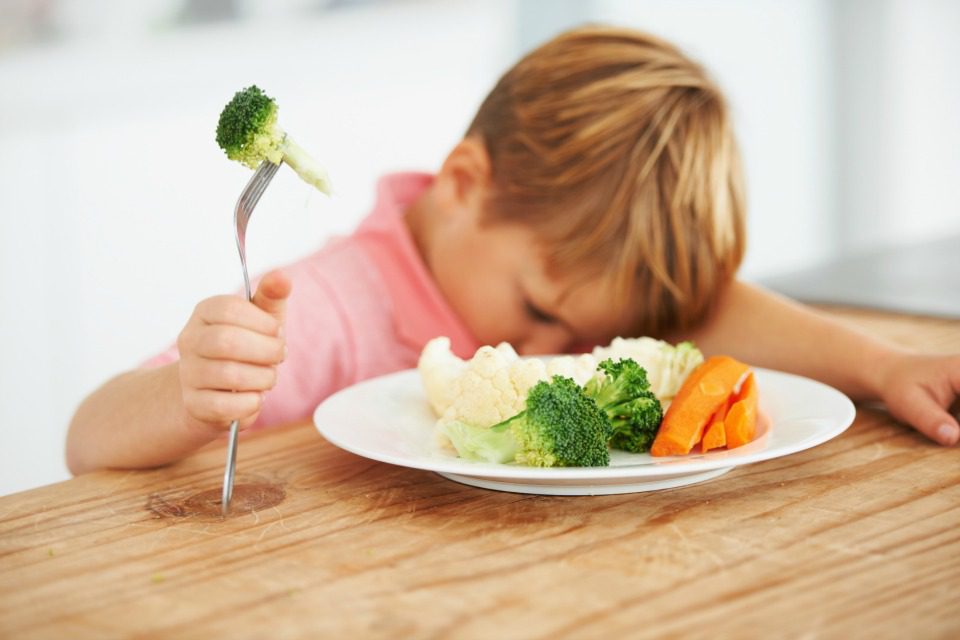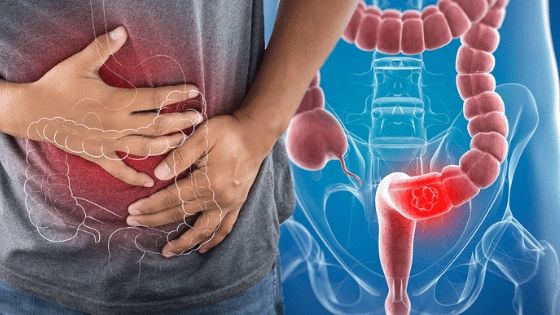
Bowel Cancer Awareness & Naturopathic Prevention Tips
June is the month to discuss bowel cancer! The 3rd most common type of cancer globally. Crap topic but here goes!
There’s Good news & Bad news…
The good news is, this type of cancer is fairly predictable & also (usually) very treatable, we know what the major risk factors seem to be, & there’s a very high survival rate if detected early.
The bad news is, it still happens all the time & is still a big killer!!! In Australia, we have a 1 in 14 chance of developing colon cancer by 85 yrs old. (This does depend on how much of a BBQ fan you are - more on that later - & men are at higher risk than females).
Video source: https://www.bowelcanceraustralia.org/bowel-cancer-awareness-month
What Is a Bowel Polyp?
Our bowel wall is made from cells that are always dying off & re-growing, constantly renewing the layer, a bit like our skin. During a colonoscopy (a good clean out & then ‘camera up the butt’ to examine the clean empty colon), a gastroenterologist may notice polyps growing. Bowel polyps are kinda like moles or skin tags growing inside you, on your bowel wall - similar to the moles that grow on your skin. It’s really easy to have your moles checked regularly, but a bit more invasive to get your polyps checked! Just like growths on your skin though, bowel polyps can be ‘benign’ or ‘malignant’, or they may be benign with the potential to become malignant later. And like skin lesions, if a cancerous one is detected really early, no major problems - just remove it & take it as a warning to be extra good to your colon. If it’s detected too late & has started to spread into other places - then you could have issues / trickier treatment.
Why Do People Develop Bowel Cancers?
Like cancer in general, it’s a case of cells beginning to grow inappropriately / the normal healthy growth & death cycle not occurring properly. This is usually due to a combination of genetics & environmental triggers, & failure of the immune system to intervene & sort it out quickly.
Why Do Bowel Polyps Form & Turn Cancerous?
Genetic Predisposition: There are several conditions people can be born with, meaning they will just strangely have a much greater tendency to develop polyps & bowel cancer - even without the other typical risk factors). If you know you have any of these conditions, or they are in your family - you may need to get regular colonoscopies to monitor, & pay close attention to preventative care.
Long Term Inflammation in the Bowel:
- Ulcerative colitis
- Crohn’s disease
- Chronic infections
- Chronic ingestion of food intolerances.
These are all potential risk factors - diligent management & more regular checking is required.
Diet: A bowel cancer-inducing diet seems to be one that’s chronically low in fibre, & too high in alcohol, saturated fat, protein, nitrates & compounds produced from cooking meat over high heat - hence the link to BBQ’S! How many typical Aussie BBQ’s you’ve attended before your 85th b’day could be a useful bowel cancer risk metric…
If you’re over 50 & your life has been like one long BBQ (full of burnt sausages & chops, white bread & alcohol), then book in for a colonoscopy ASAP! While it won’t affect everyone the same, this type of diet over time may increase your bowel cancer risk (it’s like spending your life working outdoors without any sun protection - doesn’t necessarily mean that you will develop skin cancers, but it ups your chances - especially if you have the unlucky genetics as well)!
Cigarettes: So many tools to help you quit now, just do it - cigarette smoking will increase your chances of developing any cancer, & is terrible for your gut / immune system / inflammation levels. Not to mention your wallet.
Lack of Exercise: A sedentary lifestyle, insulin resistance, obesity, type 2 diabetes…see risk above, will do similar things to your body as smoking. Start moving!
Poor Stress Management: Stress will negatively impact your gut microbiome & your immune system, both of which contribute to bowel cancer development & progression. Yoga, meditation, deep breathing...whatever works for you.
Microbiome Composition: You may have high levels of some of the microbes that produce metabolites known to promote bowel cell changes, & / or low levels of the protective ones. People with bowel cancer have different microbiomes to healthy controls. The science is still emerging here, but regular gut microbiome testing may soon become a recommendation for bowel cancer prevention.
REMEMBER: At BBQ’s go hard with the colourful, diverse fibre-filled salads (even the potato, bean & pasta salads count here as they’re high in resistant starch, a microbiome & butyrate-supporting bowel medicine)! Just minimise the burgers, bacon, booze & burnt sausages! Unfortunately, in excess - these seem to increase your bowel cancer risk.
Know The Bowel Cancer Warning Signs:
- Bleeding from the rectum: bright red blood in stools. This can be a sign of colon polyps, bowel cancer or other more minor issues like hemorrhoids or small tears in the anus.
- Changes in stools: Blood might appear as red streaks, or can make poos very dark / almost black. A change to really thin stools, constipation or diarrhoea can mean a large polyp is taking up room / blocking the way. Changes in stool can also be caused by certain foods, supplements & medications.
- Pain: You may experience severe, crampy pain if a large polyp is causing a blockage in the colon.
- Iron deficiency anemia: Bleeding from polyps can occur slowly, without any visible blood in stools. Chronic bleeding depletes your iron stores, which means you can’t build healthy red blood cells to carry oxygen around the body properly. You may feel unexplainably tired, & short of breath - particularly on exertion, ie stairs that used to be easy for you may make you breathless.
With modern research on microbiome & bowel health, immunity & cancer coming out all the time, we now know that certain microbes & their metabolic by-products are associated with a decreased likelihood of cancer development, while others seem more likely to be present in a cancerous colon.
Still a lot of work to do in this area, but this tells us that anything you can do to support a healthy gut microbiome could probably decrease your bowel cancer risk, maybe stop or even reverse the growth of pre-cancerous polyps.
How To Improve Your Gut Microbiome:
Test: The first step in cultivating a healthy microbiome should be to test what you currently have - to see what healthy microbes you already have, & then support them (alter your diet to give them more of what they love, & maybe try to starve out some of the nastier guys)! You can order a microbiome test to see where you’re at: Microba Test
Food: Eat a diverse range of fermentable fibre, especially targeted at butyrate production in the distal bowel - foods like Blend11 are ideal, & legumes, nuts, seeds, ancient wholegrains. Fermented foods can also be useful, & keeping oily fish consumption high & other meat fairly minimal.
Exercise: Sedentary lifestyle is a major risk factor for almost everything, bowel cancer is just one more reason to get moving! When you exercise, you change your microbiome for the better, & will handle stress better & have a more functional immune system.
Sunshine: Vitamin D deficiency = increased bowel cancer risk. Vitamin D essential for immunity (& much more!)
Stress Management: High stress = increases your risk of all cancer & has a negative impact on both your immune system & your microbiome).
Sleep: Your immunity, digestive health & your microbiome are nurtured by consistent good sleep.
Supplementation where needed: ie vitamin D, fish oil, prebiotic fibres, sleep & / or stress herbs). See a professional for help with the herbs.
Deep Dive - Microbes & Short Chain Fatty Acids:
Acids - they sound scary… But no! These acids are seriously good for your colon! They are the metabolic by-products of fibre being fermented in our bowel by bacteria. Kind of like alcohol is a by-product of when yeast ferment the sugars in a home brewing kit. Your colon is like your internal ‘brewery’, just making things that aren’t beer (although some alcohol can be produced!) Microbes are tiny but they can create powerful substances. It’s a pretty complex situation in the bowel because some bacteria are great at producing SCFA’s & some are not, & you need to be feeding the right microbes the right kind of fermentable fibres…& then there are different short-chain fatty acids which do different things. And cross-feeding (where you have some microbes producing substances that bnecome food for another type)! Butyrate is the most well researched & recommended with regards to colon cancer prevention. You can now find out the butyrate-producing capacity of your microbiome from a stool test: Microba Test
Why Are Blend11 & Other Fibre Sources Useful For Bowel Cancer Prevention?
Bowel cancer is most commonly found in the distal (end part) of the colon, closer to the rectum or even inside it (colorectal cancer). At the very end of the colon (depending on diet), there are loads of microbes, but microbial fibre fermentation is not usually as active as in the beginning part (it’s all used up by the end, so, there’s no fibre left for the microbes at the very end to ferment). This means that there’s not many short chain fatty acids like butyrate being produced here (esp if you’re mainly eating the sausages & white bread without the plants)! People with bowel cancer tend to have less butyrate producing microbes in their colon.
Some useful bowel cancer prevention foods then, are those that are:
- known to support microbial butyrate production (fibre from plants)
- slowly fermented fibre (like what’s in Blend11). These will be feeding bacteria all along the colon, so causing butyrate release over a long period of time, hopefully offering protection along the entire length of the colon (especially in the distal region where it’s needed most).
A 2018 CSIRO in vitro fermentation trial on Blend11 showed the following result: Blend11 samples showed more than double the butyrate production at 24 hrs when compared to psyllium husk & cellulose (control fibres used). This could indicate greater potential for butyrate production towards the end of the colon. (* this will depend on other factors too, but the early research is promising). If you are a gut geek & interested in the full CSIRO research paper on Blend11 & butyrate email me, I’ll send you a copy.

Other Butyrate Benefits:
- gut barrier maintenance & support (butyrate is the main fuel source that colon cells need to function optimally & repair themselves, it can help prevent & improve ‘leaky gut’).
- immune system regulation (when the gut barrier breaks down, immune dysfunction follows - support the gut barrier = better immune function).
- satiety after meals (helps you feel more full & satisfied).
- inflammatory bowel disease prevention / management (butyrate production, microbiome balance).
- diabetes & obesity (SCFA’s from fibre fermentation also have a great impact on blood sugar regulation & metabolism).
The below images were taken directly from this paper: Effects of the intestinal microbial metabolite butyrate on the development of colorectal cancer LINK TO PAPER
It looks a bit complex, but the basic gist is that butyrate (produced by our gut microbes fermenting fibre) has anti-inflammatory, anti-tumour & bowel healing actions. You can increase your butyrate production by increasing your fibre intake. You can also test your gut microbiome now (new technology), to see how good it is at producing butyrate!
When microbial bowel fermentation is working well, beneficial microbes produce beneficial substances like butyrate, known to have many positive health effects. It's like a factory in your gut, pumping out amazing health supplements for you, for free!
What Should You Eat?
If you’ve recently been diagnosed with bowel cancer, here’s a list of natural foods & supplements that you could find really useful to support your recovery. (Also great for anyone interested in prevention!)
Some links to more research in this area you may find useful:
The Human Gut Microbiome as a Screening Tool for Colorectal Cancer
https://cancerpreventionresearch.aacrjournals.org/content/7/11/1112
Omega 3 from Fish Oil & Bowel Cancer:
Interactive effects of fatty acid and butyrate‐induced mitochondrial Ca2+ loading and apoptosis in colonocytes
https://acsjournals.onlinelibrary.wiley.com/doi/full/10.1002/cncr.26205
VITAMIN D & BOWEL CANCER:
https://www.medicalnewstoday.com/articles/322143
Different Fibers Have Different Regional Effects on Luminal Contents of Rat Colon
https://www.gastrojournal.org/article/0016-5085(91)90077-X/pdf
If you have any questions or experiences with bowel cancer to share, I'd love to hear from you.
Jeanie

